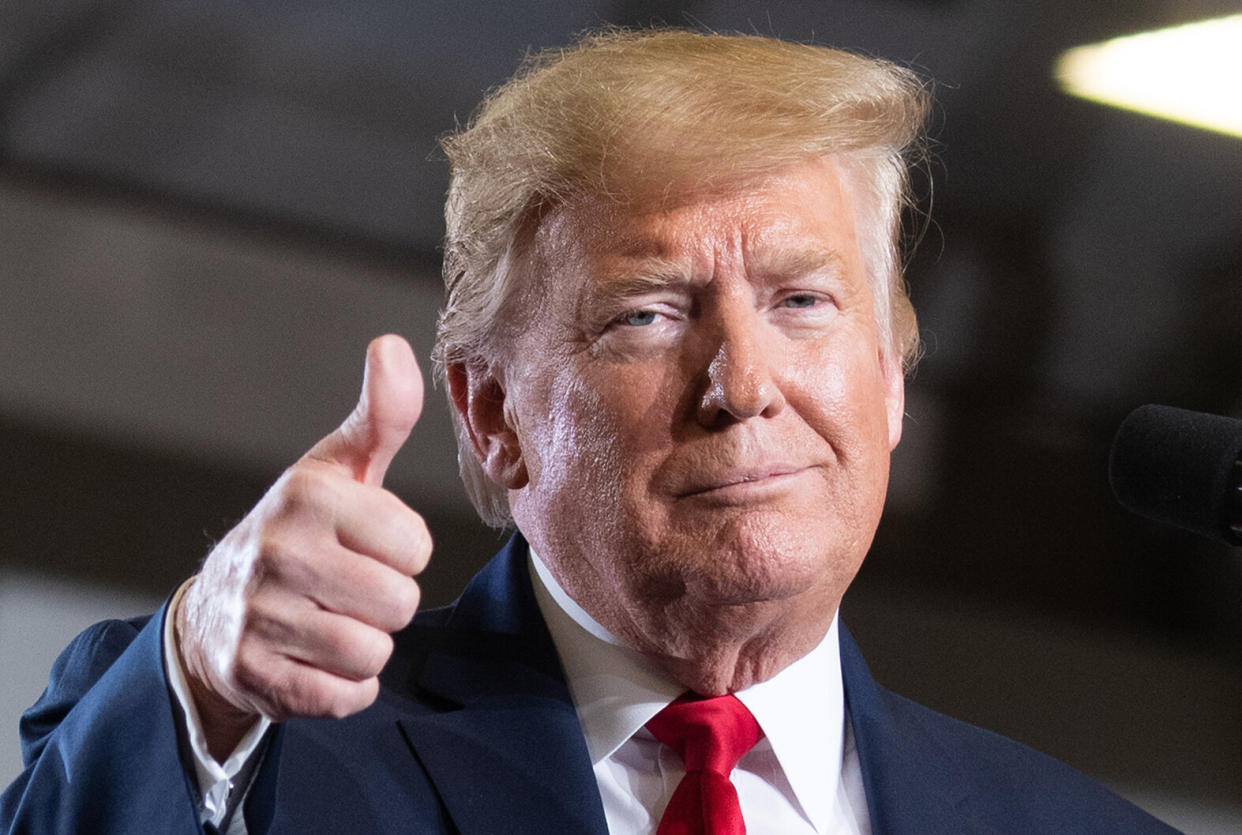Nixon Quit, Clinton Apologized, But Trump Likely To See Proof Of Invincibility

WASHINGTON ― Richard Nixon resigned rather than face impeachment. Bill Clinton apologized, repeatedly. So how will Donald Trump handle his post-impeachment life?
Americans will likely get their first taste of that future on Tuesday evening, when Trump delivers his State of the Union address the day before the Senate is all but certain to grant him an acquittal.
A senior administration official previewing the speech, who spoke on condition of anonymity, said that while the remarks would have an “optimistic tone,” he could not rule out the possibility that Trump would address the House lawmakers who led the impeachment against him. “I won’t preview if he’s going to call anybody out because I ― but I think the president will be entirely comfortable with that,” the official said.
Critics, though, are already sounding the alarm that Trump’s verbal attacks on those who impeached him will likely be just the beginning.
“He will feel empowered to do anything he wants to now,” said Ruth Ben-Ghiat, a New York University history professor and an expert on authoritarianism who has long warned about Trump’s behavior. “We are in big trouble.”
Rick Wilson, a Republican political consultant who has criticized Trump from the start of the 2016 primary campaign, said Trump will see his acquittal not as a narrow and lucky escape from disaster, but as proof that he is invincible. “We are about to witness Donald Trump empowered to break any law, to wreck any norm, and to detonate Washington, D.C., without fear of consequences. It’s a bad, bad scenario,” he said.
Some Republican senators who last week voted to end the impeachment trial without hearing from any witnesses ― including former national security adviser John Bolton, whose forthcoming book shows he has firsthand knowledge of the actions for which Trump was impeached ― said that the president would modify his behavior going forward.
Tennessee Sen. Lamar Alexander, who said Trump’s attempt to coerce Ukraine to hurt a political opponent was wrong but not impeachable, argued that the ordeal will have an effect on the president. “I would think he’d think twice before doing it again,” Alexander told NBC News.
But with Trump continuing to describe what he did as “perfect,” Yale University psychiatry professor Bandy Lee said he is highly unlikely to change his behavior. “In psychiatry, the degree to which a person is able to have remorse and to apologize is the degree to which one will check one’s own behavior and not harm others,” she said. “Those who insist on innocence or flawless ‘perfection,’ not only against evidence to the contrary, but will protest and even bulldoze those who may dare to contradict them are exactly the most dangerous individuals. ... He will likely unleash a level of vindictiveness and retaliation we have not yet seen.”
The White House did not respond to HuffPost’s queries about the president’s likely behavior in the coming days and weeks.
One longtime Trump friend, the owner of the conservative news site NewsMax, said Trump would move on with his agenda. “This is a president who is totally focused on results, and he’s going to continue that approach, even more so because of election this year,” Chris Ruddy said.
Trump’s speech on Tuesday ― his third State of the Union and fourth joint address to Congress ― is themed “The Great American Comeback,” and it will, among other things, boast of and take credit for the economy and low unemployment rate, criticize sanctuary cities and call for lower costs for prescription drugs, the senior administration official said.
What Trump might add to the words scrolling up his teleprompter, however, cannot be predicted. President Clinton similarly gave his 1999 State of the Union speech while his Senate trial was ongoing. He did not mention impeachment once.
While Trump has stuck fairly close to his script in his congressional speeches ― last year’s complaint about “ridiculous partisan investigations” was in the prepared remarks ― he frequently strays from the text in other official speeches, often turning them into de facto campaign rallies.
In any case, regardless of the content of Tuesday’s speech, the chances that Trump will continue to stay “on message” are slim, if the past is any guide. The president regularly says and posts thing on social media just days or even hours after a major speech that bear little resemblance to the remarks that others have written for him.
Just five days after his 2018 State of the Union address, for example, Trump complained during an “official” speech about tax cuts in Ohio that Democratic lawmakers had not clapped enough for him. “Can we call that treason? Why not? I mean, they certainly didn’t seem to love our country very much,” he said.
And it’s that sort of attitude that worries Lee. “There is now no limit to what he is capable of doing, and with the precarious global situation, partly through his own creation, it would take very little for us to enter into a catastrophic situation,” she said.
Love HuffPost? Become a founding member of HuffPost Plus today.
This article originally appeared on HuffPost.

